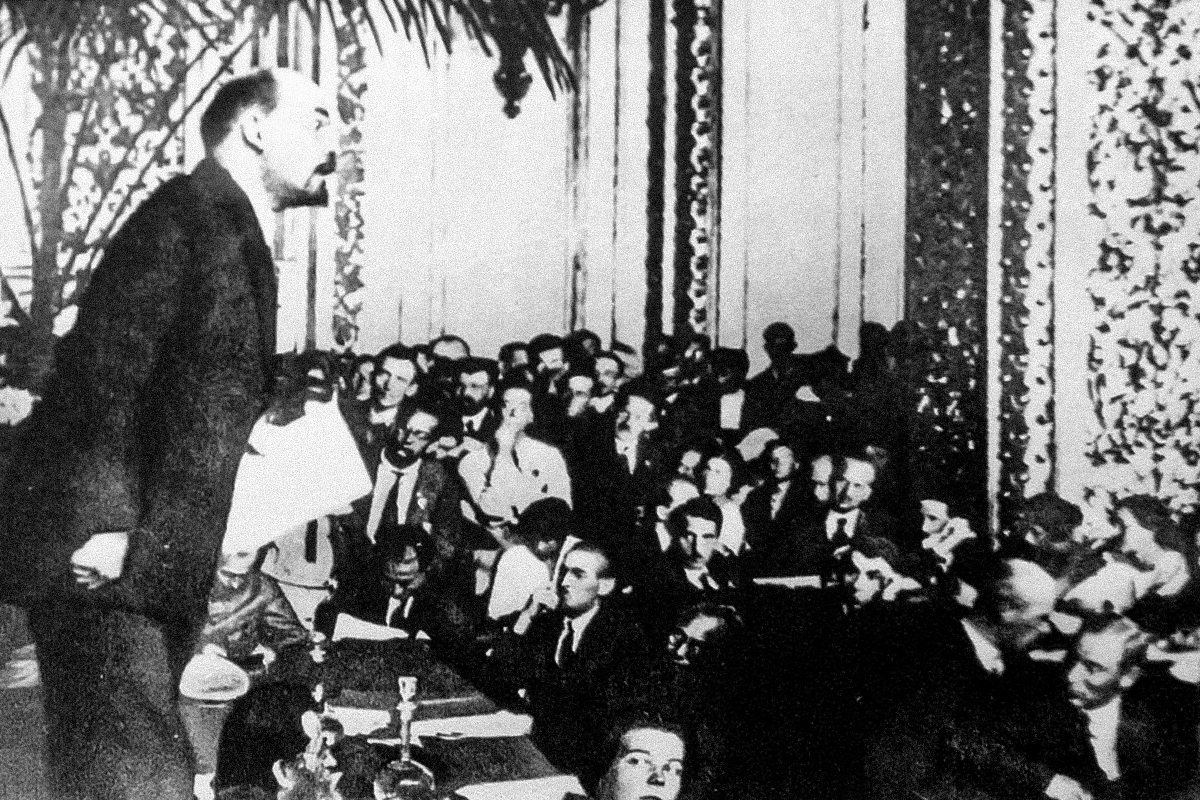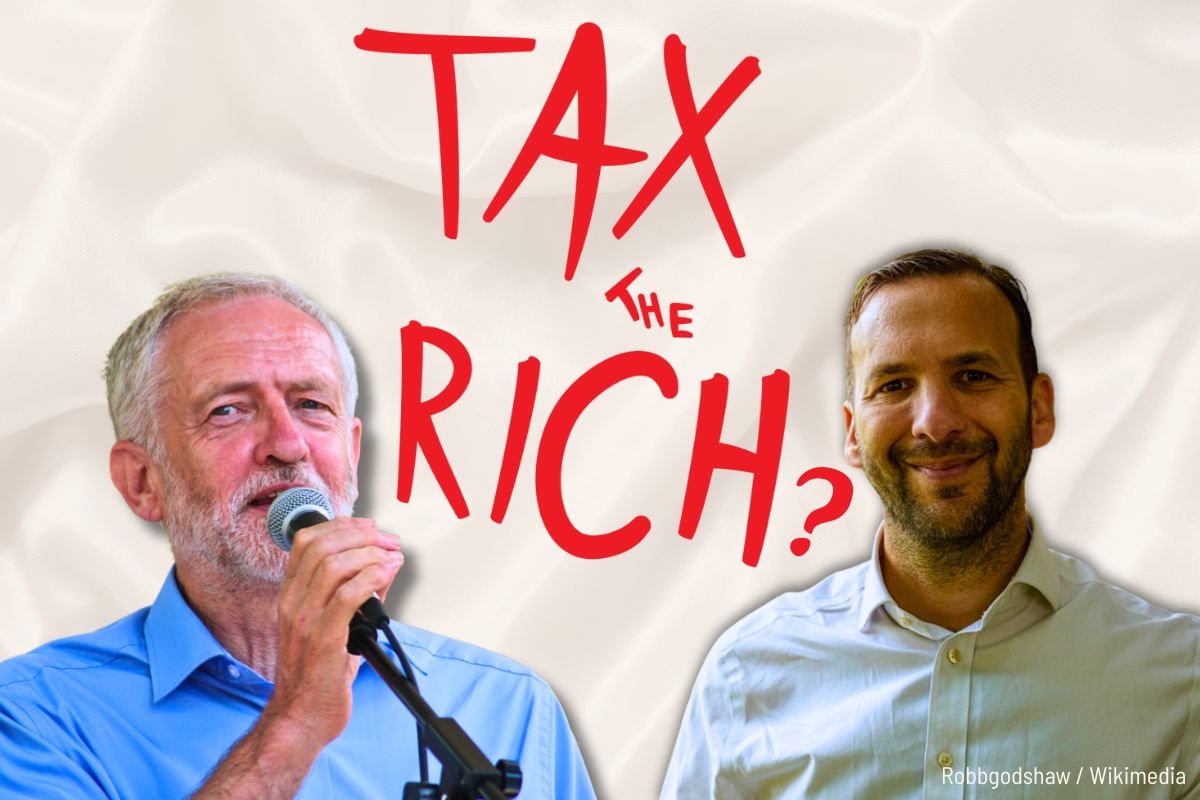Editor’s note: Like so many on the left, we have welcomed the news of a new left party led by Zarah Sultana and Jeremy Corbyn.
This is a potentially an historic step forwards, as it represents the opportunity to really build a mass socialist party, without which the problems of the working class cannot be solved.
In connection with this, we are publishing here part of a resolution by Lenin to the Third Congress of the Communist International, entitled Theses on Tactics and Strategy.
The most important present task
The most important task of the Communist International at present is to gain decisive influence over the majority of the working class and to lead its decisive sectors into struggle.
The economic and political situation is objectively revolutionary, and can give rise to an acute revolutionary crisis at any moment – be it a mass strike, a colonial uprising, a new war, or even a major parliamentary crisis. However, the majority of the working class is not yet subject to Communist influence…
Already in its first year of existence, the Communist International called on Communist parties not to close themselves off as propaganda circles but to utilise every opportunity that the bourgeois state is compelled to provide, as a weapon, a platform, a point of assembly for communism.
This includes freedom of the press, freedom of assembly, and the bourgeois parliamentary institutions, regardless of how stunted they may be. At its Second Congress, the Communist International openly rejected sectarian tendencies in its resolutions on the trade unions and on utilising parliament.
The experiences of two years of struggle have fully confirmed the correctness of the Communist International’s point of view. The policies of the Communist International have brought about, in a number of countries, the separation of the revolutionary workers not only from the open reformists but also from the centrists.
By contrast, the sectarian Communist groups (KAPD, etc.) have not gained the slightest success from their policies. The concept of strengthening communism through pure propaganda and agitation and the formation of separate Communist trade unions has been shipwrecked. Nowhere has an influential Communist Party been built in this fashion.
The situation in the Communist International
The British economy remains in disorder; the strike movement is intense as never before; the broad popular masses are increasingly discontented with the Lloyd George government; and the Labour Party and Liberal Party may well win in the coming parliamentary elections. All these factors open up new revolutionary perspectives for Britain and pose extremely important questions to British Communists.
Through the mighty strike movement, hundreds of thousands and millions of workers are subjecting to close examination the capacity, reliability, steadfastness, and conscientiousness of the trade-union apparatus and leadership.
Under these conditions, Communists’ work in the unions has taken on decisive importance. No criticisms by the party from the outside can have even a small fraction of the influence on the masses exerted by steadfast daily work by Communist trade-union cells.
This work aims to expose and discredit the petty-bourgeois traitors in the trade unions, who have become in Britain, more than anywhere else, the political pawns of the capitalists.
In other countries, where there are mass Communist parties, their task consists largely of seizing the initiative in mass actions.
In Britain, by contrast, the task of the Communist Party is above all to show the masses, in the framework of their experience in mass actions that are currently under way, that the Communists courageously and accurately express these masses’ interests, needs, and feelings.
View this post on Instagram
Partial struggles and partial demands
All the Communist parties’ agitation and propaganda, indeed all their work must be imbued with the consciousness that no enduring improvement in the conditions of the masses is possible in a capitalist framework.
Steps to improve working-class conditions and to reconstruct an economy devastated by capitalism can be taken only by overthrowing the bourgeoisie and smashing the capitalist state. But this insight must not lead to any postponement of the struggle for the proletariat’s immediate and urgent necessities of life until the time when it is capable of erecting its dictatorship.
The present period is one of capitalist decay and collapse, a time when capitalism is no longer capable of assuring workers of even the life of a well-fed slave.
The Social Democracy advances the old Social Democratic programme of peaceful reforms, carried out on the basis and in the framework of bankrupt capitalism, through peaceful means. This is conscious deception of the working masses.
Not only is decaying capitalism incapable of providing the workers with relatively humane living conditions, but the Social Democrats and reformists show every day, in every country, that they do not intend to conduct any type of struggle for even the most modest reforms contained in their programme.
The demand for socialisation or nationalisation of the most important industries, advanced by the centrist parties, is equally deceptive. The centrists mislead the masses by seeking to convince them that all the most important branches of industry can be torn out of the grip of capitalism without the defeat of the bourgeoisie.
Communist parties direct their concern not to the viability and competitiveness of capitalist industry or the resilience of capitalist finance but to the dimensions of a deprivation that the proletariat cannot bear and should not have to bear.
Demands should express the needs experienced by broad proletarian masses, such that they are convinced they cannot survive unless these demands are achieved. If that is the case, the struggles for these demands will become starting points for the struggle for power.
In place of the minimum programme of the centrists and reformists, the Communist International offers a struggle for the specific demands of the proletariat, as part of a system of demands that, in their totality, undermine the power of the bourgeoisie, organise the proletariat, and mark out the different stages of the struggle for proletarian dictatorship.
Each of these demands gives expression to the needs of the broad masses, even when they do not yet consciously take a stand for proletarian dictatorship.
To the extent that this is done, the working class will become aware that for it to live, capitalism must die.
Objections raised against raising such partial demands and accusations of reformism based on partial struggles express the same incapacity to grasp the living conditions for revolutionary action.
This weakness was also expressed when certain Communist groups opposed participation in the trade unions and parliamentary activity.
The task is not to summon the proletariat for the final struggle but to intensify the actual struggle, the only factor that can lead the proletariat to the struggle for the final goal.
The revolutionary essence of the present period consists precisely in the fact that even the most modest subsistence needs of the working masses are incompatible with the existence of capitalist society. It follows that even the struggle for quite modest demands expands into a struggle for communism.
Preparing the struggle
The Communist International is the only organisation of the international proletariat whose principles equip it to lead the struggle against capitalism.
The task is to reinforce its inner unity, its international leadership and its activity in such a fashion that it can genuinely carry out the aim stated in its Statutes:
‘To organise the common activity of the proletarians of different countries who strive for one single goal: overthrowing capitalism and establishing the dictatorship of the proletariat and an international Soviet republic.’






